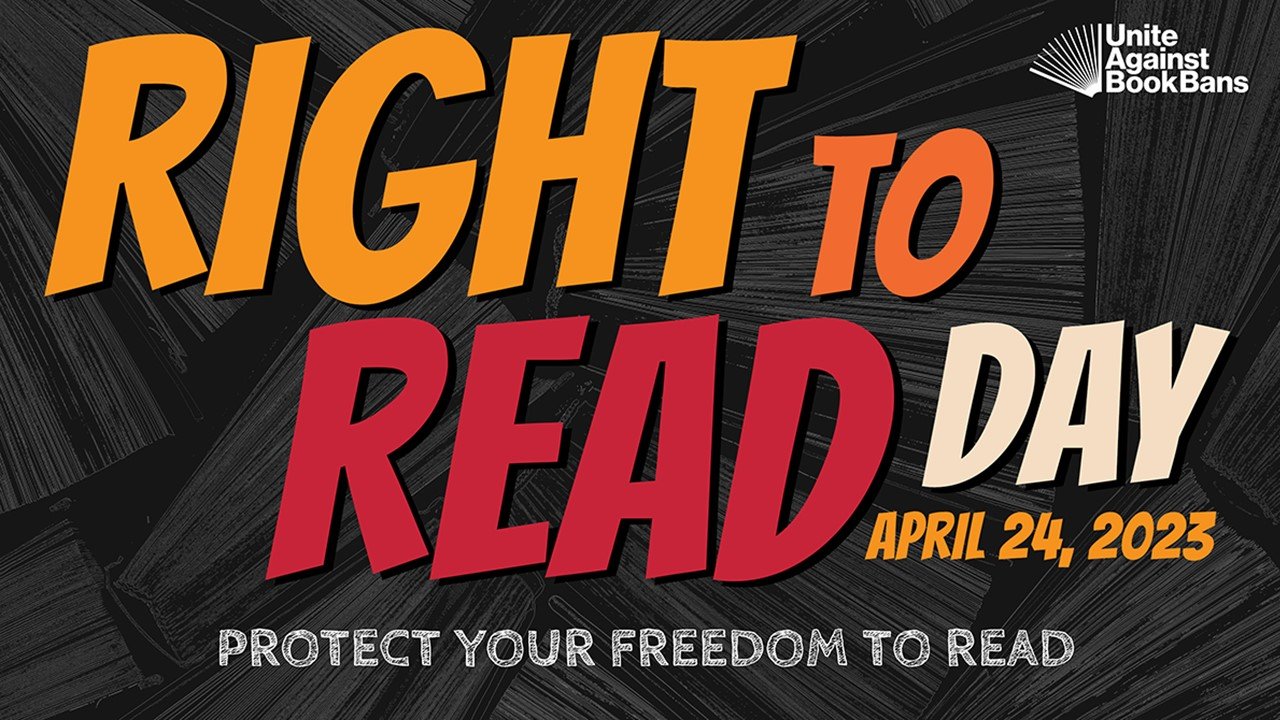Right to Read Day
Unite Against Book Bans has declared April 24 as Right to Read Day.
by Janet Salmons, Ph.D., Research Community Manager for SAGE Methodspace
Read books being challenged and banned!
This weekend, immersed in an engaging historical novel, I was jolted by the realization that in some parts of the United States I might not be able to borrow this book from the public library. Why? One character is enslaved. Slavery is described realistically.
According to the ALA's Office for Intellectual Freedom:
1,269 demands to censor library books and resources in 2022, the highest number of attempted book bans since ALA began compiling data about censorship in libraries more than 20 years ago. The unparalleled number of reported book challenges in 2022 nearly doubles the 729 book challenges reported in 2021. Censors targeted a record 2,571 unique titles in 2022, a 38% increase from the 1,858 unique titles targeted for censorship in 2021. Of those titles, the vast majority were written by or about members of the community or by and about Black people, Indigenous people, and people of color.
At this time the attacks on book access in schools are expanding to higher education and to public libraries. This is a concern on many levels. Those who teach undergraduate students are raising questions about how prepared students will be for college-level work if they have missed the critical thinking and analysis that comes from reading challenging books in literature, history, science, and social studies. Emily Knox, a professor at the University of Illinois at Urbana-Champaign observed, “Part of the educational process is to encounter things that are difficult. That process starts by being exposed to new ideas. And that really does need to happen as you move through grades. Part of being prepared to be an undergraduate, prepared for what society needs and what it means to be a good citizen, is that you are exposed to these ideas, which you may or may not agree with but are ideas that help you think more carefully and with more nuance and empathy with the world.”
New restrictions extend from what can be read to what can be discussed in the classroom. As noted in a recent article in the Chronicle of Higher Education, “In the past two years, more than a dozen [U.S.] states have passed laws or taken other actions that discourage the teaching of critical race theory or “divisive concepts,” posing a threat to free speech in academic settings….Campus leaders who do not want to run afoul of lawmakers and risk losing state funding may decide to play it safe and tell their employees exactly where they think that line is — and instruct them not to cross it. Faculty and staff members without job security and those who do not wish to draw the attention of the conservative media may feel pressure to self-censor.”
Sage is actively participating in efforts to combat these trends, together with the American Library Association and many others.
"Free expression and education are inextricably linked—wide access to quality education is only possible when educators and authors can also express themselves freely. And you can’t have a vibrant society without both of these things.”
- David McCune, board member and former CEO of Sage Publishing
What about the right to write?
What do these trends mean for social science researchers and academic writers? It is not hard to see a link between threats to readers and threats to writers. Last week I offered a webinar about managing the process involved with writing and publishing academic books. I think most writers would agree that we have enough work, without considering whether something about our content will preclude its availability to readers or adoption as a text!
Before we get to the point of publishing an academic or textbook, we need to conduct research. If topics and populations are too risky to read about are they too risky to study? As noted in a previous Methodspace post, a lot of steps occur in the research process, and a chilling effect might mean important problems are not studied. Also, as Dr. Cindy Veldhuis asked, “Is anyone prepared for death threats?” because they decided to study LGBTQIA+ issues? Protection of academic freedom, and protection of researchers in the field (including the online field) are very real issues at present.
Speak Up!
If you have research and/or experiences to share with Methodspace readers, contact me about a potential guest post.
Here are three organizations at the forefront of advocacy for the right to freely access and read books:


